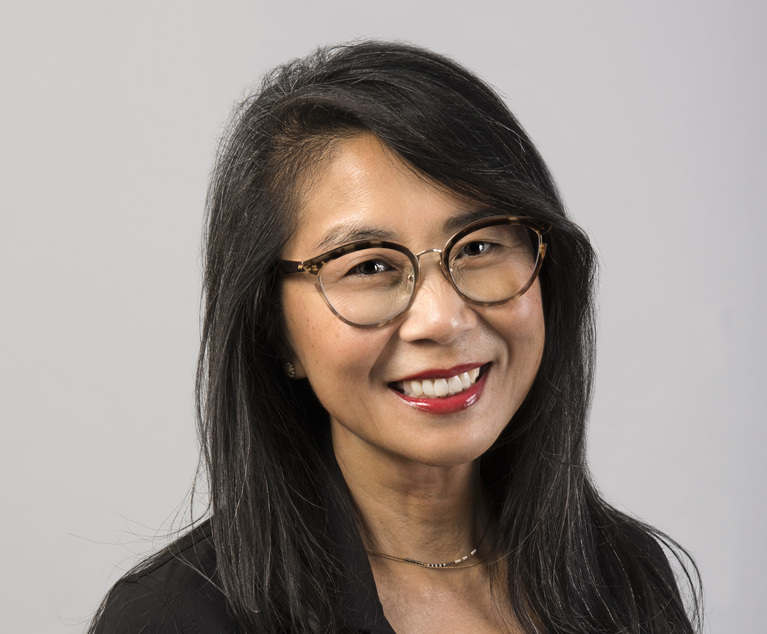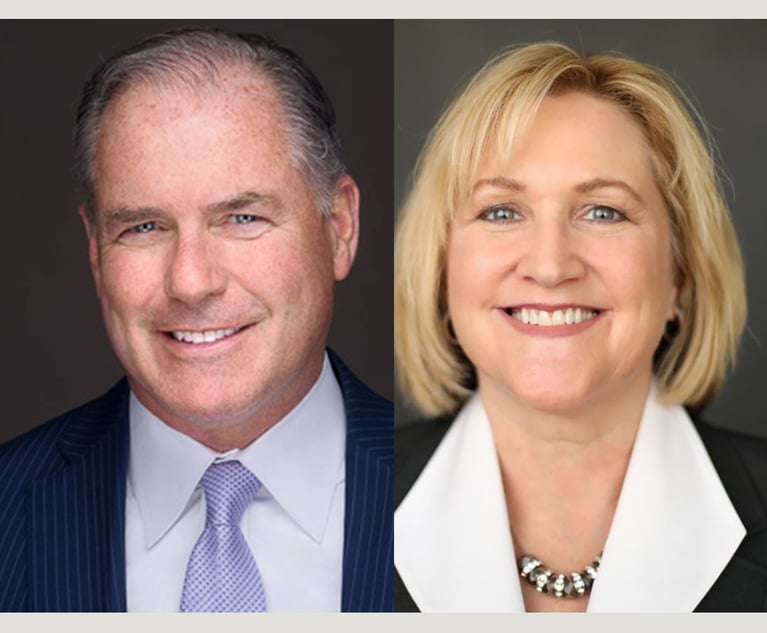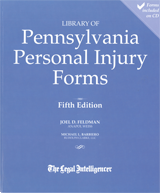Candidate: Kay Yu
Court: Philadelphia Court of Common Pleas
Party: Democrat
Philadelphia Bar Association rating: Highly recommended
The following has been edited lightly for length and style.
The Legal Intelligencer: How would you describe your judicial philosophy?
Kay Yu: As Socrates taught, “Four things belong to a judge: to hear courteously, to answer wisely, to consider soberly, and to decide impartially.” I pledge to all Philadelphians that I will listen intently, consider wisely and decide fairly.
The Legal: What makes you the best candidate for the role?
Yu: Everyone, no matter their circumstances, deserves respect, dignity and equity. I have dedicated my life to serving others and to making our communities better, fairer places to live.
I believe that my experience, dedication, values and even temperament make me fit to be an excellent judge. Although I am happy to speak to my own qualifications, I am proud to share about the many others who have endorsed my candidacy. The Judicial Commission of the Philadelphia Bar Association rated me “highly recommended,” and I have been more broadly endorsed than perhaps any other candidate running for the Philadelphia Court of Common Pleas. For a full listing of my 71 endorsements, please go to kayforjudge.com/endorsements.
Finally, I have the honor to be one of the judges that Gov. Josh Shapiro selected for an interim appointment after winning the primary election. As of Aug. 1, 2023, I have been sitting as a judge in the Felony Waiver Program, which is part of the Criminal Section of the Trial Division of the Philadelphia Court of Common Pleas. It is a privilege to run a courtroom where I do my utmost to treat everyone with dignity, respect and humanity, and make decisions with a restorative justice lens to repair harm and restore community.
The Legal: What is the greatest threat to the practice of law or problem the profession faces?
Yu: As stated in the preamble to the Rules of Professional Conduct, “Lawyers play a vital role in the preservation of society.” The rules specify, among other things, that “a lawyer should further the public’s understanding of and confidence in the rule of law and the justice system because legal institutions in a constitutional democracy depend on popular participation and support to maintain their authority.”
Preserving our republic by electing public servants, including judges, who are demonstrably dedicated to democratic process through free, fair and equitable elections is, in my view, the greatest challenge we face.
The Legal: What does your party membership say about you and your legal outlook?
Yu: I am a member of the Democratic Party with values driven by small “d” democracy. By way of example, I served as the Voter Protection Director in 2020, for the Pennsylvania Democratic Party and the Biden/Harris Coordinated Campaign throughout the commonwealth of Pennsylvania. The work I did with my voter protection staff was to disseminate high-quality voter information to help all eligible voters, regardless of party affiliation, have unfettered access to the ballot, and to ensure that every ballot that was legally cast, was counted.
The Legal: Do you think courts in Pennsylvania have a perception problem when it comes to appearing partisan or polarized? If so, what would you do to combat this?
Yu: Every state court judge in the commonwealth of Pennsylvania, from the trial court level up to the Pennsylvania Supreme Court, is voted onto the bench via a partisan election as part of a closed primary system. Once elected, judges are prohibited from engaging in political activity. It is incumbent on each individual judge to adhere to the Pennsylvania Code of Judicial Conduct.
During the short time I have had the privilege to serve as a Common Pleas judge, my party affiliation has not been questioned. Nor has anyone raised it as an issue. My focus has been to study the law, be prepared to handle each matter that comes before me on an individual basis, and fairly and humanely apply the law to the facts. It is a weighty responsibility.
The Legal: Several CLEs and bench-bar panels have recently addressed the growing phenomenon of distrust in the courts. In your view, how has distrust in the judiciary created challenges for the bench, and how should judges respond?
Yu: Trust in courts is an essential element of the preservation of a civil society and a necessary ingredient in maintaining our democratic republic. In my view, trust must be earned. Every time I take the bench, I endeavor to earn the trust of everyone who appears before me by striving to make fair decisions with compassion, equity, integrity, decency and humility.
The Legal: What factors matter in deciding when recusal is necessary, and would you recuse yourself if a campaign contributor were involved in litigation as a party or attorney before you?
Yu: I would disqualify myself from any matter for which I could not confirm that: (1) I am free from personal bias or prejudice concerning any party or any party’s counsel; and (2) I have no knowledge of the facts that are in dispute in the proceeding.
In the event of the potential that:
- I might have more than a de minimis interest that could be substantially affected by the proceeding;
- I, individually or as a fiduciary, have an economic interest in the subject matter in the controversy or is a party to the proceeding;
- I know or learn that a party, a party’s lawyer or the law firm of a party’s lawyer has made a direct or indirect contribution to my campaign in an amount that would raise a reasonable concern about the fairness or impartiality of my consideration of a case;
- I served as a lawyer in the matter in controversy, or was associated with a lawyer who participated substantially as a lawyer in the matter during such association;
- I personally participated in the matter in controversy while I served on the Philadelphia Commission on Human Relations; or
- I made a public statement that commits me to reach a particular result or rule in a particular way in the proceeding or controversy;
I first would consider whether the circumstances warranted my recusal. Only if I deemed it appropriate to request a waiver, would I disclose, on the record, the basis of my circumstances and ask the parties and their lawyers to consider, outside my presence, whether to waive disqualification. If, following the disclosure, the parties and lawyers agree to the waiver, I would incorporate the agreement into the record of the proceeding.
The Legal: Who are your role models and mentors?
Yu: I am very grateful to the multitude of currently sitting judges in the Criminal Section who have provided advice, guidance and mentorship in the few months since I was commissioned to serve on the Common Pleas Court through an interim appointment as of July 1, 2023.
NOT FOR REPRINT
© 2024 ALM Global, LLC, All Rights Reserved. Request academic re-use from www.copyright.com. All other uses, submit a request to [email protected]. For more information visit Asset & Logo Licensing.


 Philadelphia Court of Common Pleas candidate Kay Yu. Courtesy photo
Philadelphia Court of Common Pleas candidate Kay Yu. Courtesy photo






